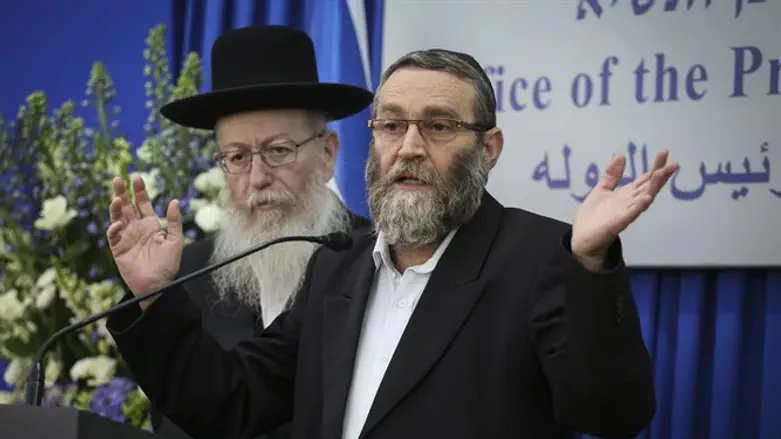
Haredi MKs from United Torah Judaism party are planning to vote against the ‘Greater Jerusalem’ bill proposed by Minister Yisrael Katz (Likud), Kan reported Thursday.
This coming Sunday, the Ministerial Committee for Legislation is set to vote on the ‘Greater Jerusalem’ bill, potentially securing coalition support for the proposal. If passed by the committee, the bill would be formally adopted as a government bill, obligating coalition members to vote in favor of the law in the Knesset plenum.
If passed, the law would expand the municipal borders of Jerusalem to include the city of Maale Adumim to the east, which is currently home to nearly 38,000 Israelis. In addition, the town of Givat Zeev to the northwest, the city of Beitar Illit to the south, the town of Efrat, and other communities in Gush Etzion would all be incorporated into Jerusalem.
According to Katz, the plan would add some 150,000 Jews to the city, increasing the total population to over one million.
At present, Jerusalem is home to nearly 900,000 people, including 540,000 Jews and 330,000 Arabs. Expanding the city’s limits would increase the Jewish population to 670,000, shifting the demographic balance from 61.1% Jewish and 37.3% Arab to 67% Jewish and 32% Arab.
But one of the Netanyahu government’s haredi coalition partners, United Torah Judaism, is opposed to the bill, Kan reported Thursday, with the party’s two most senior leaders expressing their disapproval of plans to expand Jerusalem’s municipal boundaries.
Health Minister Yaakov Litzman and Finance Committee Chairman Moshe Gafni both pledged to vote against the proposal at the Ministerial Committee for Legislation’s next meeting this coming Sunday.
Haredi MKs fear the plan would dilute the haredi population’s growing electoral strength in the capital. While one city which would be incorporated into Jerusalem, Beitar Illit, is predominantly haredi, and another, Givat Zeev, has a largely haredi neighborhood, the remaining communities included in the ‘Greater Jerusalem’ plan are populated primarily by secular, traditional, or Religious Zionist Jews.
More than one-third (36%) of the city’s 540,000 Jewish residents identifies as haredi, according to a May 2017 report by the Central Bureau of Statistics – more than any other single Jewish group in the capital. Thirty-one percent identify as religious or religious-traditional, 21% identify as secular, and 12% identify as traditional.
The city’s demographic composition has made mayoral elections competitive in Jerusalem, with Mayor Nir Barkat narrowly defeating UTJ candidate Meir Porush with just 52% of the vote in 2008.
